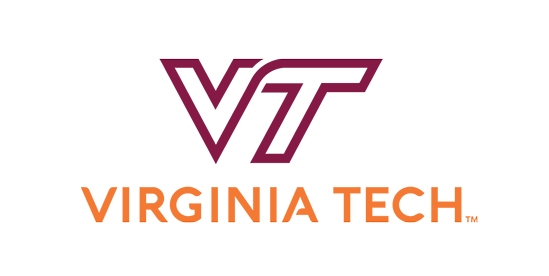AI for Cybersecurity and Cybersecurity for AI

The Commonwealth Cyber Initiative recently awarded 18 grants totaling $1,610,000 to CCI researchers for studies in AI for Cybersecurity and Cybersecurity for AI.
Researchers at nine CCI member schools received grants, including:
Projects selected for grants include:
Adaptive Intrusion Detection in IoT Networks Using LLM-Driven Behavioral Analysis and Deep Reinforcement Learning
Researchers will develop adaptive intrusion-detection tools through the integration of Deep Reinforcement Learning (DRL), Large Language Models (LLMs), neuro-symbolic AI, and wireless networking to enable the Internet of Things (IoT) to swiftly recover from cyberattacks without degrading the user experience. (Funded by the CCI Hub)
Researchers from Old Dominion University, Virginia Tech
AI-Powered Cyber Defense: Leveraging Transformer Models and eXplainable Reinforcement Learning Methods for Advanced Intrusion Detection and Response System
Researchers will introduce a method that integrates transformer encoder, decision transformer, and eXplainable Reinforcement Learning (XRL) methods to build an AI-powered Intrusion Detection and Response Systems (IDRS). (Funded by the CCI Hub)
Researchers from Old Dominion University, Virginia Commonwealth University, Christopher Newport University
Cyber-Attack Resilient Distributed and Explainable AI with Zero Trust Architecture
Researchers aim to design stakeholder-centric, secure data-sharing and analytics systems focused on algorithms and frameworks that integrate federated learning (FL) and artificial intelligence (AI). This will address security challenges to big data in collaborative supply chains. (Funded by CCI’s Coastal Virginia Node and Southwest Virginia Node)
Researchers from Old Dominion University, Virginia Tech
Deepfake Detection by Leveraging Conditional Generative Adversarial Networks with Uncertainty Quantification
Researchers will introduce an Uncertainty-Aware Deepfake Detection Framework, integrating Generative Adversarial Networks (GAN), AutoEncoder (cAE), and Bayesian Neural Networks (BNN), addressing the challenges of Out-of-Distribution (OoD) and False Positive (FP) detection. (Funded by the CCI Hub)
Researchers from Virginia Commonwealth University, Old Dominion University
Enhancing the Security of Large Language Models Against Persuasion-Based Jailbreak Attacks in Multi-Turn Dialogues
Researchers will address vulnerabilities in Large Language Models (LLMs) posed by multi-turn persuasion-based jailbreak attacks, in which attackers exploit conversational manipulation to bypass safety protocols. (Funded by the CCI Coastal Virginia Node)
Researchers from Old Dominion University, University of Virginia
GenA(eye)ris: Generating Synthetic Iris Biometrics for Presentation Attack Security and Security for Generative Biometric Models
Researchers aim to increase the security of iris biometrics by using generative AI to boost the performance of presentation attack detection (PAD) models and to safeguard generative models’ training datasets from leaking identifiers. (Funded by the CCI Hub)
Researchers from Virginia Tech, George Mason University
Intelligent and Secure Wireless Sensor System for Monitoring Cattle on Farms
Researchers will develop a robust, antifragile AI-driven wireless sensor system that can adapt, evolve, and grow stronger under high uncertainty, dynamics, threats, and failures to ensure early detection of diseases and prevent or mitigate pathogen spread. Funded by CCI Southwest Virginia Node
Researchers from Virginia Tech, Virginia State University
Knowledge-Enhanced Threat Detection With Large Language Models
Researchers aim to develop techniques for intelligent, knowledge-enhanced, and context-aware cyber-threat detection by harnessing large language models (LLMs) to enable deep cyber reasoning, intelligent decision-making, and the incorporation of external security intelligence into defense strategies. (Funded by the CCI Hub)
Researchers from Virginia Tech, University of Virginia
Leveraging Large Language Models for Enhanced Software Security Analysis and Malware Detection
Researchers will create an innovative framework leveraging Large Language Models (LLMs) and Retrieval-Augmented Generation (RAG) techniques to enhance software security analysis and malware detection for Android applications. (Funded by CCI’s Coastal Virginia Node and Northern Virginia Node)
Researchers from William & Mary, George Mason University
Meta-Architecture Binary Code Analysis: Multi-ISA Deep Learning Analysis Leveraging Single-ISA Data
Prompted by the increased use of deep learning, researchers propose using meta-architecture binary code analysis, in which a model trained on abundant data for a high-resource Instruction Set Architecture (ISA) can make predictions for other ISAs without modifications. (Funded by the CCI Hub)
Researchers from George Mason University, Virginia Tech
A Multitask LLM-Based Vulnerability Detector with Conversational Assistance
Researchers will develop a multitask Large Language Model (LLM)-based vulnerability detector capable of detecting, pinpointing, and explaining software vulnerability functions, as well as providing suggested solutions. (Funded by the CCI Hub)
Researchers from William & Mary, George Mason University
Privacy-Preserving Federated loT Learning for Smart Public Health Surveillance
Researchers aim to develop a learning framework for public health surveillance, enhancing early disease outbreak detection and targeted interventions while ensuring individual data privacy by addressing potential data leakage. (Funded by the CCI Hub)
Researchers from Virginia Commonwealth University, University of Virginia
Secure and Privacy-Conscious Threat Detection via Federated Learning and Graph Neural Networks
Researchers will address the integration of federated learning (FL) and graph neural networks (GNNs) to develop scalable privacy-centric host-based intrusion detection systems (HIDS) for threat detection. (Funded by the CCI Hub)
Researchers from University of Virginia, George Mason University
Secure and Privacy-Preserving Decentralized AI through Model Refine and Fully Homomorphic Encryption
Researchers aim to exploit potential system vulnerabilities in the decentralized learning framework, develop attack and defense mechanisms, and theoretically analyze the system's resilience. (Funded by the CCI Coastal Virginia Node)
Researchers from Old Dominion University, Virginia Commonwealth University
Study of Adversarial Attack Strategies on Autonomous Vehicles equipped with LiDAR Sensors
Researchers will study adversarial strategies targeting autonomous vehicles, examining deep neural network-based 3D object detection models, such as voxel-based, point-net base, and graph neural network-based. (Funded by the CCI Hub)
Researchers from Christopher Newport University, Old Dominion University
Threat Hunting System Enhancement by Generative AI and LLMs
Researchers will investigate the impact of generative AI and large language models (LLMs) on automated threat-hunting operations to develop a system to monitor live network traffic and perform an automated incident response on large real-time data with suspicious network traffic from prompt injection attacks. (Funded by the CCI Northern Virginia Node)
Researchers from George Mason University, Virginia Military Institute
Toward Integrated Security and Privacy Solutions for Multi-Modal AI
Researchers will conduct a comprehensive investigation into the complex interplay between security and privacy in multi- modal AI systems, including systematically examining the interdependencies between these issues and understanding the mechanisms by which enhancements in one area affect the other. (Funded by the CCI Coastal Virginia Node)
Researchers from Old Dominion University, William & Mary
Towards a Knowledge-Guided Foundation Model for Long-Tail Anomaly Detection in Network Traffic
Researchers will develop a knowledge-guided foundation model for timely network traffic anomaly detection when data is under long-tailed distribution. (Funded by CCI’s Coastal Virginia Node and Southwest Virginia Node)
Researchers from William & Mary, Virginia Tech











